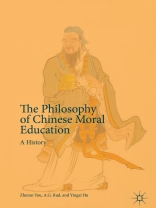The book depicts a unique historical and cultural phenomenon, the philosophy of Chinese moral education, in an attempt to capture the essence of Chinese culture. While tracing the historical journey of this philosophy, the book rearranges and interprets the conceptual frameworks concerning moral education in various Chinese philosophical schools and religions. In so doing, it summarizes the ideas of human relations, man and nature, cosmology, moral virtues, and educational approaches, posing intriguing questions about how they have influenced Chinese characteristics, social norms, and value orientations. In particular, the book brings up discussions on the culture of family and state, the challenges that the philosophy had encountered in early modern and present China, as well as the prospect of regeneration of the philosophy and its significance for our world today. This is the book to read if you want to have a deep understanding about China and its belief and educational system.
Tabela de Conteúdo
Foreword.- Chapter One.- Part One: The Era of Origin and Boom.- Chapter Two.- Chapter Three.- Chapter Four.- Part Two: The Era of Conflict, Adaptation, and Integration.- Chapter Five.- Chapter Six.- Chapter Seven.- Part Three: The Era of Full Development and Transformation.- Chapter Eight.- Chapter Nine.- Part Four: The Era of Crises, Learning, and Regeneration.- Chapter Ten.- Chapter Eleven.- Chapter Twelve.
Sobre o autor
Zhuran You received his Ph D in Cultural Foundations of Education at Purdue University, USA. He is Professor of Education at Shaoxing University, China.
A.G. Rud is Distinguished Professor of Education at Washington State University, USA.
Yingzi Hu is an instructional reform facilitator in the Office of the Provost at Shaoxing University, China.












